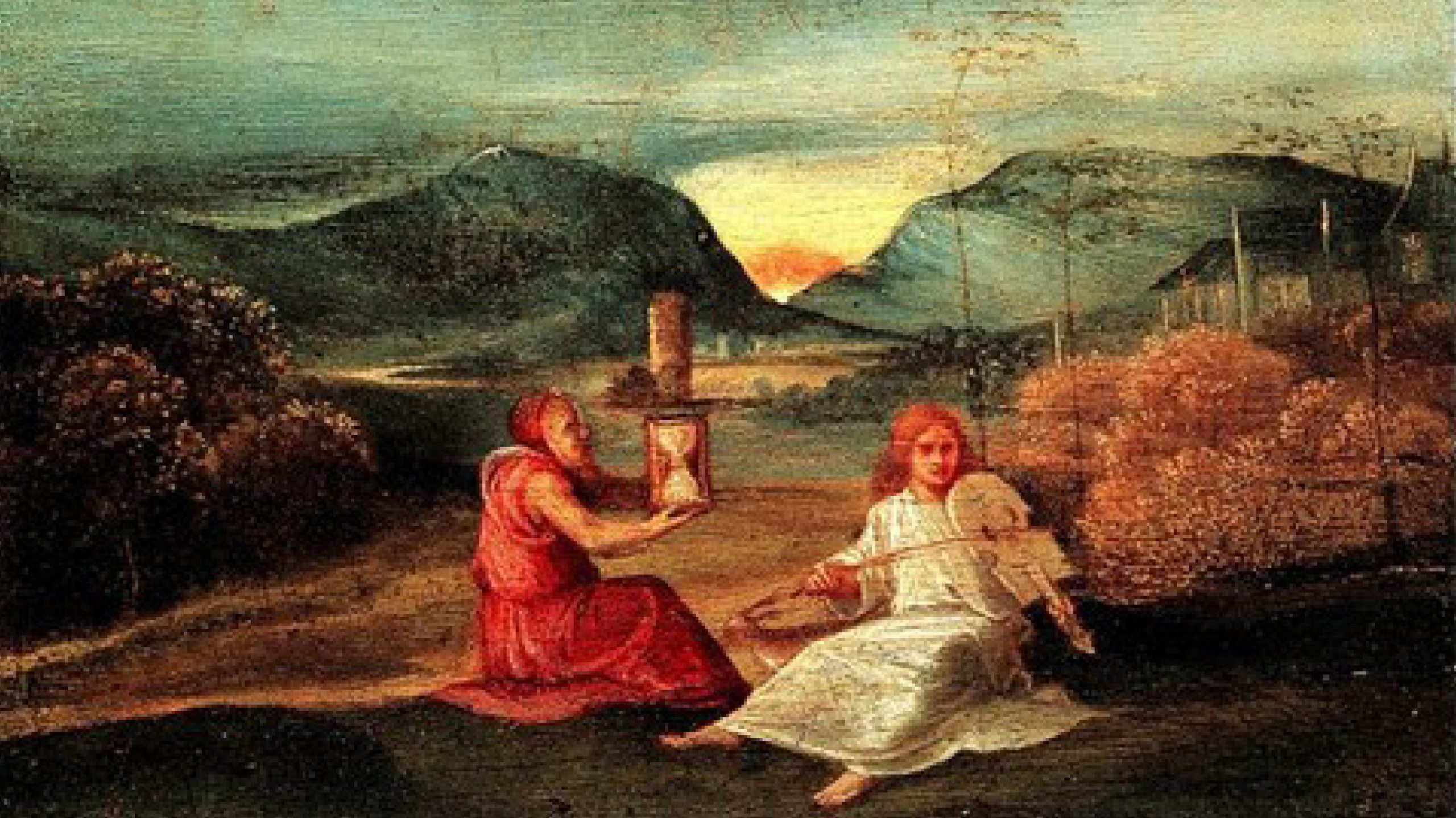Tending the Renaissance of the World Soul: Byzantium in Italy and the Humanist Dream

Anonymous in Giorgione’s style, Orpheus and Time. Washington, Phillis Memorial Gallery
Early in the fifteenth century it became painfully obvious that the scattered remains of what had once been glorious Byzantium were sitting on the edge of a historical abyss: it was simply a matter of time before the Ottoman Turks would conquer Constantinople and turn it into the capital of their rapidly expanding, increasingly powerful Empire (1453).
This course explores the extraordinary cultural legacy that Byzantium left to the world in and through its waning. We will focus in particular on the area of the Italian peninsula, where many of the most eminent Byzantine delegates to the Council of Ferrara-Florence (1437-39) ended up settling, “trans-lating” with them the heritage of their Classical, Late Antique and Christian cultures.
One of the most powerful Italian families, the Medicis, sponsored the “rebirth” of the ancient wisdom of the Greeks through a painstaking program of translations largely authored by Marsilio Ficino. But the Florentine Academy also gathered poets, philosophers, painters, musicians. Their works quickly spread throughout Italy, and from there to the rest of the Western world.
The invention of the printing press powerfully helped entertain the dream that the (re)birth of an irenic, peaceful, self-aware and holistic society was possible. The dream of such a felicitous Renaissance only lasted a few decades, engulfed as it was by Europe’s political and confessional tragedies. Even so, its legacy never died out completely, and remained the backbone of Western sapiential awareness.
It is the heritage of this “other” Renaissance which we shall try to track down — a heritage grounded in the ancient teachings of the Hermetic wisdom, advocating through the ages the “golden” possibility of achieving a timeless, truly realized human consciousness.
Language of instruction: English
Instructor: Dr. Daniela Boccassini
Prerequisites: No prerequisites
Coming soon!
Required texts:
There are no required books to buy. Required texts are available online, or will be made available via Canvas.
Primary Texts (either in PDF or available online) include excerpts from:
— Asclepius
— Nicholas of Cusa
— Marsilio Ficino
— Hypnerotomachia Poliphili
— Erasmus
Recommended texts:
TBA, either in PDF or available online